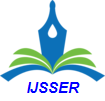Abstract:
Waqf is a legal act of waqif (man who give his treasure to social interest) to separate and/or
transferring part of their wealth (treasures) either permanently or for a specified period in
accordance with their interests for purposes of worship and/or the general welfare according to
sharia (Islamic principle). In Indonesia, waqf assets such as land reached 3,99 billion square
meters spread over 429.911 locations across Indonesia. Therefore the asset of waqf land in
Indonesia is the largest assets in the world. However, the large of waqf assets has not been able
to bring prosperity for the Muslim community in Indonesia. There are several things that cause it
to happen, including: First, nadzir not have competence in investing the assets so they have no
economic value. Second, the management of waqf that exist today does not lead to the economic
and community empowerment. Thus, manage the waqaf assets that lead to empowerment
requires new innovative concepts. Among these concepts is through the ABCD approach or
Asset Based Community Development. In ABCD, there are 5 players in succeeding the program.
They are individuals, associations, institutions, physical asset, and connections or networking.
The implementation of Asset Based Community Development (ABCD) in waqf can be reached
through 7 stages of activity. Preparing, Participatory Program, Asset Reinventing, Designing,
Communicating, Implementing, and Evaluating.
|
 International Journal of Social Science & Economic Research
International Journal of Social Science & Economic Research

